Keeping It Real Estate
Coronavirus (COVID-19) Style

Unless you are a hermit you are aware of Coronavirus (COVID-19). The virus that started in China and has made its way to our lovely nation.
While we maybe late the United States is rapidly catching up to other nations in their efforts of precaution and prevention. There is no shortage of information on the web outlining the do's and don'ts while we are in this time.
I will continue to provide you with information as I receive it to on the Coronavirus itself and practical measure we all can take during this time.
Aside from the health, political and social welfare information you can find on my blog, I will be offering Real Estate insight on my Facebook
and Instagram. Follow me and turn on your notifications to be the first to know when I am going live to answer your Real Estate questions; Commercial, Residential and Renters alike. I know these are unprecedented times and I want to equip you with knowledge to help you come out ahead when this virus has passed.
It's Monopoly Not Chess ™️
Odest Riley Jr.
Odest Riley • March 16, 2020

Homebuyers looking to finance a home purchase with a Federal Housing Administration (FHA) loan are sometimes surprised they are not allowed to purchase a particular property because it doesn't meet FHA requirements for a property. The FHA has put these minimum property standard requirements into place in order to protect lenders. KEY TAKEAWAYS Federal Housing Administration (FHA) loans have requirements, including minimum property standards, which help protect lenders. Federal Housing Administration (FHA) loans must meet safety, security, and soundness standards, which includes areas like roofs, electrical, water heaters, and property access, among others. The Federal Housing Administration (FHA) does not require the repair of cosmetic or minor defects, deferred maintenance, and normal wear if they do not affect the safety, security, or soundness of the home. Workarounds for meeting the standards include having the seller make repairs themselves before selling the property. Alternatively, buyers that can't qualify for an FHA loan may use another loan product, such as an FHA 203(k) loan, which allows the purchase of a home that has significant problems. Federal Housing Administration (FHA) Minimum Property Standards When a homebuyer takes out a mortgage, the property serves as collateral for the loan. In other words, if the borrower stops making the mortgage payments, the mortgage lender will eventually foreclose and take possession of the house. The lender will then sell the house as a way of reclaiming as much of the money still owed on the loan as possible. Requiring that the property meet minimum standards protects the lender. It means that the property should be easier to sell and command a higher price if the lender has to seize it. At the same time, this requirement also protects the borrower: It means they will not be burdened with costly home repair bills and maintenance from the start. In addition, with a fundamentally sound place to live, the borrower may have more of an incentive to make their payments in order to keep the home. What Are the FHA's Minimum Property Standards? According to the U.S. Department of Housing and Urban Development (HUD), the FHA requires that the properties financed with its loan products meet the following minimum standards: Safety: the home should protect the health and safety of the occupants. Security: the home should protect the security of the property. Soundness: the property should not have physical deficiencies or conditions affecting its structural integrity. The HUD then describes the conditions the property must meet to fulfill these requirements. An appraiser will observe the property's condition during the required property appraisal and report the results on the FHA's appraisal form. Property appraisals are one of the many requirements that buyers fulfill before settling on a deal. For single-family detached homes , the appraiser is required to use a form called the Uniform Residential Appraisal Report. The form asks the appraiser to describe the basic features of the property, such as the number of stories, the year it was built, square footage, number of rooms, and location. It also requires the appraiser to "describe the condition of the property (including needed repairs, deterioration, renovations, remodeling, etc.)" and asks, "Are there any physical deficiencies or adverse conditions that affect the livability, soundness, or structural integrity of the property?" The condominium unit appraisal form is similar but has condominium-specific questions about the common areas, homeowners association, the number of owner-occupied units, etc. Mortgage lending discrimination is illegal. If you think you've been discriminated against based on race, religion, sex, marital status, use of public assistance, national origin, disability, or age, there are steps you can take. One such step is to file a report to the Consumer Financial Protection Bureau or with the U.S. Department of Housing and Urban Development (HUD). The FHA does not require the repair of cosmetic or minor defects, deferred maintenance, and normal wear if they do not affect the safety, security, or soundness of the home. The FHA says that examples of such problems include, but are not limited to, the following: Missing handrails Cracked or damaged exit doors that are otherwise operable Cracked window glass Defective paint surfaces in homes constructed post-1978 (because of lead paint hazards) Minor plumbing leaks (such as dripping faucets) Defective floor finishes or coverings (worn through the finish, badly soiled carpeting) Evidence of previous (non-active) wood-destroying insect/organism damage where there is no evidence of unrepaired structural damage Rotten or worn-out countertops Damaged plaster, sheetrock or other wall and ceiling materials in homes constructed post-1978 Poor workmanship Trip hazards (cracked or partially heaving sidewalks, poorly installed carpeting) Crawl spaces with debris and trash Lack of an all-weather driveway surface Most Common Property Safety, Security, and Soundness Problems However, there are many areas where the FHA does require problems to be remedied in order for the sale to close. Here are some of the most common issues that homebuyers are likely to face: Electrical and Heating The electrical box should not have any frayed or exposed wires. All habitable rooms must have a functioning heat source (except in a few select cities with mild winters). Roofs and Attics The roofing must keep moisture out. The roofing must be expected to last for at least two more years. The appraiser must inspect the attic for evidence of possible roof problems. The roof cannot have more than three layers of roofing. If the inspection reveals the need for roof repairs, and the roof already has three or more layers of roofing, the FHA requires a new roof. Water Heaters The water heater must meet local building codes and must convey with the property. Hazards and Nuisances A number of conditions fall under this category. They include but are not limited to the following: Contaminated soil Proximity to a hazardous waste site Oil and gas wells located on the property Heavy traffic Airport noise and hazards Other sources of excessive noise Proximity to something that could explode, such as a high-pressure petroleum line Proximity to high-voltage power lines Proximity to a radio or TV transmission tower Property Access The property must provide safe and adequate access for pedestrians and vehicles, and the street must have an all-weather surface so that emergency vehicles can access the property under any weather conditions. Structural Soundness Any defective structural conditions and any other conditions that could lead to future structural damage must be remedied before the property can be sold. These include defective construction, excessive dampness, leakage, decay, termite damage, and continuing settlement. Asbestos If an area of the home contains asbestos that appears to be damaged or deteriorating, the FHA requires further inspection by an asbestos professional. Bathrooms The home must have a toilet, sink, and shower. (This requirement might sound silly, but you'd be surprised what people will take with them when they're foreclosed on, and what vandals will steal from a vacant house.) Appliances Anecdotal evidence suggests that the FHA requires properties to have working kitchen appliances, particularly a working stove. However, FHA documents do not mention any requirements regarding appliances. Remedies for Properties Below Minimum Standards There are options for homebuyers who have fallen in love with a property that has one of these potentially deal-killing problems. The first step should be to ask the seller to make the needed repairs. If the seller can't afford to make any repairs, perhaps the purchase price can be increased so that the sellers will get their money back at closing. Usually, the situation works the other way around—if a property has significant problems, the buyer will request a lower price to compensate. However, if the property is already priced below the market or if the buyer wants it badly enough, raising the price to ensure the repairs are completed (and the transaction closed) could be an option. If the seller is a bank, it may not be willing to make any repairs. In this case, the deal is dead. The property will have to go to a cash buyer or a non-FHA buyer whose lender will allow them to buy the property in the present condition. Many homebuyers will simply have to keep looking until they find a better property that will meet FHA standards. This reality can be frustrating, especially for buyers with limited funds and limited properties in their price range. Some homebuyers may be able to gain approval for a different loan product. A non-FHA loan may provide more leeway on what condition the property can be in, but the lender will still have its own requirements. So, this approach may not be successful. Another option is to apply for an FHA 203(k) loan, which allows the purchase of a home that has significant repair and maintenance problems. The Bottom Line FHA loans make it easier for borrowers to qualify for a mortgage, but they don't necessarily make it easier to buy a property. If a property does not meet the minimum standards for an FHA loan, many homebuyers will simply have to keep looking until they find a better property that does meet FHA standards—a process that can be frustrating, especially for buyers with limited funds and few properties in their price range. However, FHA borrowers who know what to expect when home shopping can restrict their search to properties that are likely to meet FHA guidelines, or at least avoid setting their hopes on a fixer-upper property before having it appraised. Hire a Pro: Develop Your Financial Strategy Finding a financial advisor can be challenging, but the right professional can help you create a financial strategy that meets your retirement goals.

I believe in knowing what you know and knowing where to find out what you don't. With the web at our fingertips there is no reason only excuses to be ignorant of anything. Investing is a huge topic that has many pockets; one beings stocks. There are countless resources that discuss about his wealth generator. Today I want to direct you to an article on I nvestopedia by Chad Langager.
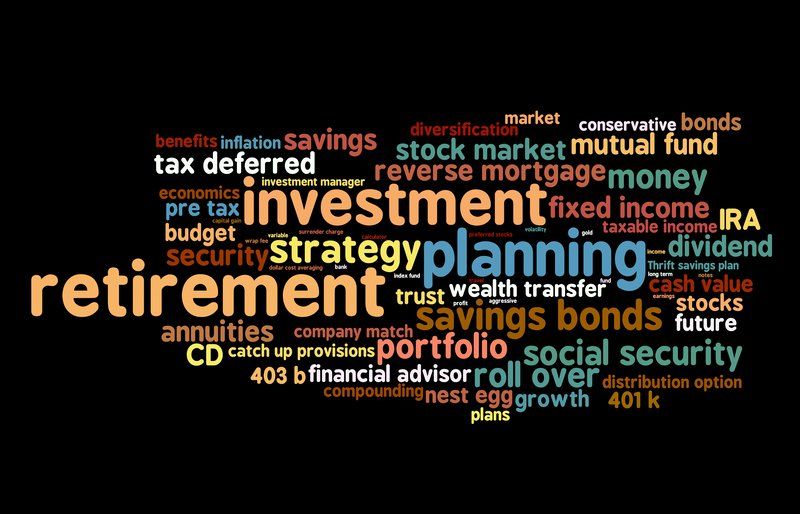
As an investor you open up a new revenue stream, if not multiple, to your wealth portfolio. For some reason people think investing is for a specific type of person or groups of people, that is the furthest thing from the truth. Just like food or clothes there is an investment option for every taste and budget. You can invest in - Stocks - Real Estate - Options And there are countless options in each of those categories! There is no time like the present to invest; the earlier we start our money working for us the better. If all of this is foreign to you, don't sweat it, you are in the right place! Over the next several weeks we will be discussing all of this in depth. For those of you who do not have any cash to invest there is still time to join in on our No Spending Challenge! Odest

While financial literacy is an exhaustive topic and the niche of budgeting is an ever evolving topic, I thought it would be helpful to have a centralized place for this Budget Basic Series. Each link will take you to a resource (download/site) that will assist you in practicing the valuable information shared in the previous post Budget Basics Pt. 1: Introduction Knowing how much your income will be, how much you will spend, and how much will be saved is known as budgeting. Budgeting plans play a big role in our lives. How are you managing? Take this survey to see if your financial future is in danger. Budget Basics Pt. 2: Goals! What They Are & How To Achieve Them We all need to have some financial goals! Just like any of aspect of our life having SMART goals is key to consistent success. If you want to be financially successful understanding goals is a must. Goal setting, short-term vs long-term, and some pointers on analysing and revising your goal timeline can be found here; as well as a great goal sheet to help you track your progress. Budget Basics Pt. 3: Incomes & Expenses Knowing what you have and what is going where it is going is a must. The number one issue people have is not knowing what they have. I spent countless hours consulting individuals and families due to the fact the left hand did not know what the right hand was doing. Get your Budget Worksheet. Budget Basics Pt. 4: Managing What You Have 1 Having multiple expenses is common and having multiple streams of income is becoming more of the norm if not the necessity. You need a system in place. Not just one that works but one that you are willing to work with! Documentation Documentation Documentation is not optional; especially if you are a business owner (you should think of your life as your own personal business whether it is set-up as a legal corporation) Budget Basics Pt. 5: Managing What You Have 2 Keep in mind documentation is not just about a papertrail of what you have acquired or released. There is more to wealth than your finances but they all are connected to them. Managing your life is the end goal; your fiscal health is a portion of that. Review important insurances you need, recall the value of spending wisely, and review needs vs wants, savings, smart decision making. Budget Basics Pt. 6: Using Credit Just like money is not the root of all evil. Credit is not finances secret killer. As any other thing in life ignorance is issue. Learn to use credit and not let it use you. Credit is the opposite of investment, input of resources with the idea of a larger ROI, when you are using it wrong with a short-term mindset. Credit used wisely can benefit you, your company or family. Budget Basics Pt. 7: Unexpected Crisis It happens, life. We hope that we are prepared for the unplanned. While it is nearly impossible to be 100% ready for the things we did not expect, there is ways to put those odds more in our favor . Hope this helps you do that. Odest The Really Tall Guy

1. ASSESS THE SITUATION Take a moment, sit down, and evaluate the situation at hand. Running in panic will not help you solve anything. It is important to take time to think and draw out a plan that will help you make the right choices under incredible stress. Write down all possible solutions and follow your written plan, marking off possibilities as you put your plan into action. 2. PRIORITIZE YOUR EXPENSES Certain bills can take priority over others. Creating a budget will help you identify what your priorities should be. The most important items are to be placed first on your list. These items should be food and shelter. Examine all other expenses to determine those items you can do without such as entertainment, cable, and other discretionary items. It is important to identify those things you can do without, at least temporarily, so that you can pay for necessities. 3. CONTACT YOUR LENDERS Contact your lenders as soon as you identify that you will have a problem making your payments. After all, it is to their best interest to help you and they may be able to lower your interests or extend the payment terms to help you with an unexpected financial crisis. Too often people wait until they are severely delinquent before contacting their lenders, and by then lenders aren’t as willing to work with you. If you know that money is getting tight and you might need help, call them before you get behind. 4. FIND EXTRA MONEY • Family and Friends. Asking family and friends for financial help or other support during times of financial difficulties is an option to consider. Whether you ask for funds outright or promise to pay back, consider family and friends as resources. • Get a loan or use your credit cards. You can always try to get a loan or use your credit cards but please keep in mind that this may only make the problem worse in the long term. While borrowing money can provide quick access to cash, it can also come with high interest rates and a new monthly payment. If you’re experiencing a financial hardship for an extended period of time, you may find yourself in a downward spiral that is nearly impossible to recover from. • Take From your Retirement Account. You may have some money available via investments or in retirement accounts. Generally speaking, withdrawing money from your retirement account is a bad idea as it can put your retirement security in jeopardy, but it could also be enough to keep you from going into even further financial trouble. If you have contributed funds to a retirement account such as a 401(k), you may be able to borrow funds from the account. Check with your employer or the 401(k) investment company to see if you are permitted to borrow from your retirement account. You may be able to borrow funds without paying taxes and avoiding any penalties as long as you repay the loan over time. You may also qualify for a hardship withdrawal or even a regular premature distribution. These are clearly a last resort as anything you withdraw will be taxed, and if you are younger than age 59 ½, you may also face an additional 10% penalty. • Use your Savings. The best way to avoid using credit is to have money in a savings account. It may be a smart idea to consider using some of the funds in the savings account to help manage the financial crisis. Just be sure to replenish your savings as soon as possible. SEEK ADVICE AND ASSISTANCE FROM PUBLIC AND PRIVATE SERVICE There are a number of resources available to individuals who need help during a crisis. It is important to reach out to them to see if you qualify for their services. Check out these resources to learn about available programs in your area: Public / Government Benefits • Benefits.gov Benefits.gov (formerly GovBenefits.gov) was launched in an effort to provide citizens with easy, online access to government benefits and assistance programs. You can search for a wide variety of benefit programs by state, by federal agency, by category of desired assistance, and more. There is also a simple questionnaire at http://www.benefits.gov/ that can help you pinpoint benefit programs that will best fit your situation. • American Hope Resources (AHR) AHR was created to help Americans who are suffering from financial hardship get resources, discounts, employment, financial aid, coupons etc.AHR is dedicated to the purpose of supplying information and detailed directions on how to receive and apply for these programs •Employee Assistance Programs An Employee Assistance Program (EAP) is a voluntary, work-based program that offers free and confidential assessments, short-term counseling, referrals, and follow-up services to employees who have personal and/or work-related problems. Check with your employer or human resources department to see if there’s an EAP available to help you. •Social Services 2-1-1 connects callers to information about critical health and human services available in their community. For example, 2-1-1 can offer access to the following types of services: • Basic Human Needs Resource: food banks, clothing, shelters, rent assistance, utility assistance. • Physical and Mental Health Resources: medical information lines, crisis intervention services, support groups, counseling, drug and alcohol intervention, rehabilitation, health insurance programs, Medicaid and Medicare, maternal health, children’s health insurance programs. • Employment Support: unemployment benefits, financial assistance, job training, transportation assistance, education programs. • Support for Older Americans and Persons with Disabilities: home health care, adult day care, congregate meals, Meals on Wheels, respite care, transportation, and homemaker services. • Support for Children, Youth and Families: Quality childcare, Success by 6, after school programs, Head Start, family resource centers, summer camps and recreation programs, mentoring, tutoring, protective services. Consumer Credit Counseling Reputable credit counseling organizations can discuss your entire financial situation with you and help you develop a personalized plan to deal with your money problems. An initial counseling session typically lasts an hour with an offer of follow-up sessions. Listed below are several organizations that list credit counseling agencies as members and that offer these services free or at low-cost: • Association of Credit Counseling Professionals (ACCPros) – http://accpros.org/ • National Foundation for Credit Counseling (NFCC) – http://www.nfcc.org/ • Association of Independent Consumer Credit Counseling Agencies (AICCCA) – http://www.aiccca.org/
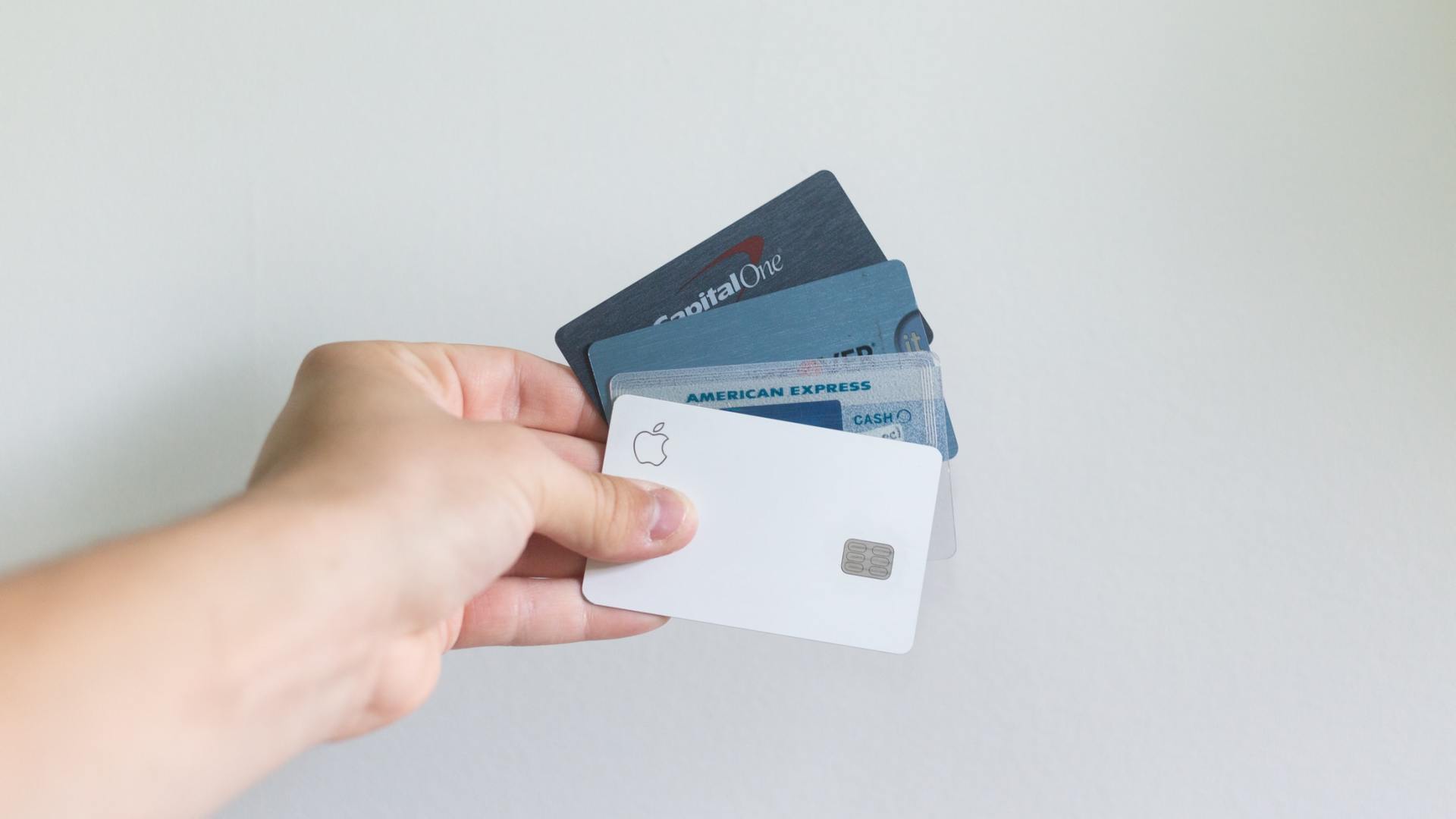
In this section, we are going to discuss the basics of credit including some terminologies, different types of credit and the costs of credit and loans, as well as its appropriate use. --- WHAT IS CREDIT? Credit is a rather convenient way to purchase goods and/or services. Simply put, credit allows you, the “borrower”, to buy a product or service NOW with the promise of paying it at some time in the future. Almost always, you will be charged interest for this convenience. The credit you have usually determines how much you are permitted to “borrow”, for how long, and what interest rate will be applied to your loan. So why use credit? Reasons for using credit are varied and at some level, personal. For example, significant purchases such as your home or your first car can be more bearable by getting a loan, which allows you to spread the cost over a period of time. After all, not everyone has huge amounts of cash lying around at their disposal. There are those who may have the money to pay for goods but use credit cards because it is easier and safer than using cash or checks. There are also others who may have built up their savings but still borrow because they feel that rebuilding their savings is harder that paying the loan. For whatever reasons you may have, it is important to understand credit and use it appropriately to make sure that helps you achieve your goals instead of stop you. TYPES OF CREDIT Installment Credit – it is time-based. This allows you to borrow are specific amount of money for a specific amount of time. Typically you are required to have paid off the loan by the end of the agreed time period. Usually this kind of credit is paid on a monthly basis; and with each payment you will be paying down the loan balance including fees and other charges. Examples include: • Personal loans • Mortgage loans • Car loans Note that there is also what we call non-installment credit. This is typically a kind of loan that needs to be repaid in one payment by a specific date. Service providers like your phone and cable and utility companies like gas, electricity and water use this type of credit. Revolving Credit – this allows you to borrow up to a pre-established amount (also known as your “credit limit”) repeatedly. You repay the borrowed amount in full or make a partial payment that is subject to interest and other fees/charges. As you pay down the balance, the credit becomes available to you again thus the term “revolving” – as soon as you pay it back, it becomes available to you again. Examples include: • Credit cards • Home equity lines of credit Secured Loans vs. Unsecured Loans Secured Loan – a type of loan backed by a property or collateral. If you default on the loan, or if you stopped paying it altogether, your lender has the right to take the collateral back. This is called repossession. An example of a secured loan is a car loan (have you seen the 1984 film “Repo Man”?). Unsecured loan – the opposite of a secured loan, this type of loan is not backed by any collateral. Since the risk is higher for lenders, interest rates and fees on unsecured loans are generally higher that secured loans. Credit cards are the most common examples of unsecured loans. Other examples of unsecured loans include: • Payday loans • Medical loans THE COSTS OF CREDIT Some terms you ought to understand: Creditor/Lender – any institution – say a bank, store, or service provider – that grants you the means or credit to buy goods/services now and pay later. Agreement – your use of credit is based on an agreement between you and your creditor. Terms and Conditions – As in any agreement that you enter into, these are basically the rules you and your lender need to follow. READ them. Some key points in the agreement that you need to understand are: • What the fees are • When and/or how the fees are assessed • When you are required to pay • How much you are required to pay Interest Rate – the rate of interest that you will pay on your loan. It varies greatly per lender, and there are different types too. There are different methods creditors use to calculate your interest. The method that the company uses can definitely make a considerable difference on how much you will be paying. Below is a common method used by credit card companies - • Average Daily Balance or “ADB” – The ADB is calculated by adding up your balance at the end of each day then dividing it by the total number of days in the billing period. Example: $15,000.00 Total Daily Balance(s) / 25 days = $600.00 ADB The average daily balance is what you are charged interest on. Keeping this in mind, it is beneficial to make earlier payments, so that you can bring down your average balance by the end of the month, resulting in the lowest charge for that month. Fees and Charges – here are some of the most common fees and charges you will have to pay in particular for credit cards: • Late Fees – if your payment is late than the due date, this fee can be applied. • Over Limit Fee - if your balance exceeds the pre-established limit on your account, this can be charged. • Cash Advance Fees – Most creditors give you the capacity to take out cash from your credit card account. However the fee or interest is much higher than when you use the card for purchases. You might want to know how much your bank charges as the rates usually go from 20% or higher. • Annual Fee – Most credit card issuers have this yearly fee, ranging from $15-$300, as the cost for having the convenience of the card. Generally, the cards that have an annual fee have considerable benefits such as a good airline miles program, cash back or points program, etc. The annual fee might be a one-time charge on your credit card during a specific month of the year, or it could be divided and charged to your account monthly. • Additional/Other Cardholder Fees – you may have to pay this if you add another name to your account as someone who is authorized to use your credit card (Supplementary Card). Tip: Getting the best deal is a first step to successfully manage your credit. Here are some online resources you can check out when shopping for a credit card: www.federalreserve.gov www.bankrate.com www.creditcardguide.com Most of us taking this course today might have gotten into trouble with credit one way or another. HOWEVER, this does not mean that one should give up on credit completely. Credit can be a very valuable tool for your financial well-being. APPROPRIATE USE OF CREDIT How do you use it? When using any type of credit you need to be sure you are aware of how to use it appropriately, and in a way that will benefit you, not make things harder on you. What do you do with it? Before using your credit, you may want to sit down with someone else whom your financial decisions may affect and discuss your options thoroughly. Where does it fit in the budget? And when you do have that discussion about your credit, keep a copy of your budget on hand. Your budget will show you where your income is going and whether or not you can afford an added expense of paying a credit card bill or loan. When making your decision about whether you can take on extra financial burdens, make sure you are taking everything into account. Other questions! Did you receive extra pay this month making it seem like you have more money to work with? Next month, will have that extra money or will you have nothing much left over at the end of the month? Are you considering taking money out of your savings in order to make the payments? DON’T STEAL FROM YOUR SAVINGS! Again, ideally savings are to be kept for rainy days, and if you are considering taking money from there to enter into a new debt, then PLEASE STOP . If you really have to take that loan, then consider other areas of the budget to cut from. Tip: Want to stay healthy? Staying out of debt keeps your stress factor down. What? Credit is not free? NOPE! Do not spend money you do not have. Whatever it is you are planning to buy, if you cannot make the payments to pay off within a couple months, chances are you most likely do not need to buy it until then either. So, what is then considered "appropriate" use of credit? It is any time that you use credit wisely. This includes all the purchases you make after long and careful consideration, when you use it for something that you need, not want; where you know you will be able to make the payments that are required, on time, and eventually, in full.
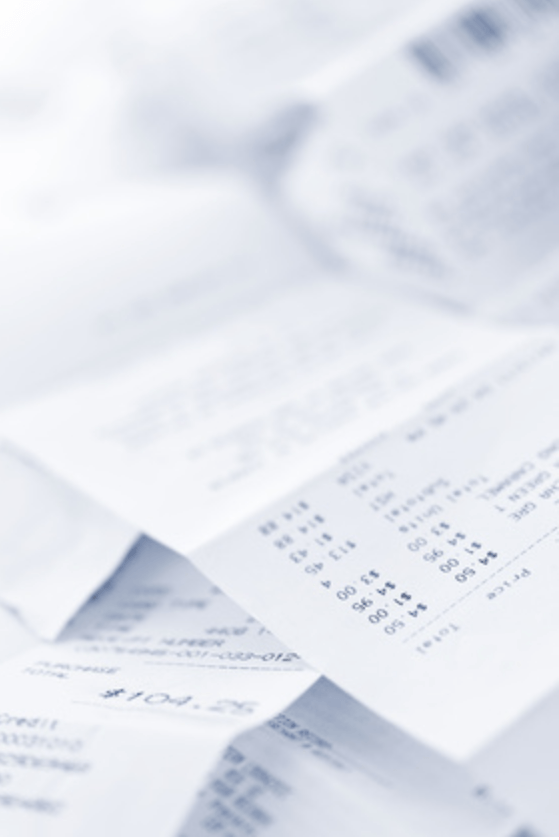
There is more to managing your money than how you keep track of and document it. Here are the rest of the categories under the umbrella. SPENDING WISELY Be smart! Knowing what to buy, when to buy and where to buy can save you a considerable amount of money. It is important to make smart decisions when buying something, like a new car, a new pair of shoes, or a new entertainment set. Let’s take a look on how our spending is affected by the decisions we make when we go shopping. NEEDS AND WANTS According to psychologist Abraham Maslow, we all have various levels of needs. Some needs are more essential like shelter, food, and clothing. While some are less essential like a gold watch, jewelry or a luxury car. By prioritizing your needs over your wants, you can avoid making unnecessary spending. We’re not saying you don’t deserve pampering yourself. If you can hold off on buying something unnecessary you’ll have more money to save and eventually more money to reward yourself. MAKING SMART DECISIONS Making smart decisions is no rocket science. But it is not simple either. Much like climbing a flight of stairs, you need to walk on each step or else you risk yourself slipping into an accident. Knowing the reason behind why you’re buying what you’re buying is an important step in making a smart shopping decision. Identifying “what you need” from “what you want” can greatly improve your chances of making a smart decision. The way you define your reason will determine the next steps you’ll take. Let’s say you define your reason as “I need a brand new house” then your only course of action is buying a new house. But if you define your reason as “I need shelter”, a new set of alternatives will show up like renting an apartment or renting a room. The next step is knowing your options. The more choices you have the better the chance of getting the best option for you. Make a list of what you need to buy then go around the stores in your area and compare prices. Now that you have your options, you need to gather information about the item or items that you need to buy. A television can be cheaper at John’s Televisions but you need to know if this cheap television can hold up. Remember, not because it’s cheap it’s the right item to buy. You need to consider its quality as well. Always check the features of the item you will buy before spending. Remember: go over these steps when you find yourself confused on what to do. Be well informed. Keep your budget in mind. Ask for a discount. Learn to walk away from a bad deal. Always have a plan and stick to your plan. ARE YOU INSURED? There are many types of Insurance that people should retain. Getting insured helps you deal with emergencies; from a broken refrigerator to a broken car. But you need to know what insurance to buy and how much coverage do you need. Almost anything can be insured. But there are certain things that you must insure properly. There are three things that you should consider insuring; your life, your health and your property. When buying insurance, you might want to carefully read and understand all paperwork before signing. You should be familiar with your insurance’s coverage and limitations, which is outlined in your contract. Do not forget to get a copy of your insurance contract and store them properly. You can use this if ever you have any questions about your insurance. Consider your deductible and premium. Deductible is the amount of out of pocket expense before your insurance company makes any expenses. Premium is the amount you pay the insurance company for the policy. Remember, getting insurance is important. But do not buy more than you need and you can handle. YOUR LIFE You might want to consider insuring your life if there are people depending on you. Death is tragic; do not make it harder by putting your loved ones in difficult situation, financially. Having life insurance should, at the very least, cover basic funeral expenses and provide breathing room for your family. YOUR HEALTH One of the most important types of insurance to have is health insurance. Having good health lets you work and earn money. Most employers provide health insurance to its employees. If you don’t have one, you should consider talking to your employer about this benefit. You need health insurance even if your employer doesn’t offer it or if you’re self employed. YOUR PROPERTY Having homeowner’s insurance is mandatory when you have a mortgage. If you are renting, you should get a renter’s insurance. Having your belongings inside your residence insured will be of big help when you need to replace them in the event of a disaster. SAVE UP! Saving money is definitely important to your financial welfare. Having money saved up will help you get out of most financial problems. It’s always easier to breathe when you have an emergency fund to dig in to when you’re in an emergency. If you do not have an emergency fund in place, now’s the time to start. Always pay yourself first! You should make a habit of saving 5-10% of your income. It may sound difficult to save money when you are in debt but it is possible. Have separate accounts for your emergency fund, periodic payments and financial goals. Keep in mind that your emergency fund will only be used in emergency situations. You have to have at least 3 to 6 months worth of basic living expenses in your emergency fund. If possible, find extra income while reducing your expenses. Make use of “Interest”. Money saved in a savings account accumulates interest. Over time, your money will grow if you keep it untouched. Resist the urge to use your emergency fund if it’s not an emergency and you will be well rewarded! There are other available means to save your money and keep it untouched aside from a savings account. Explore your options.
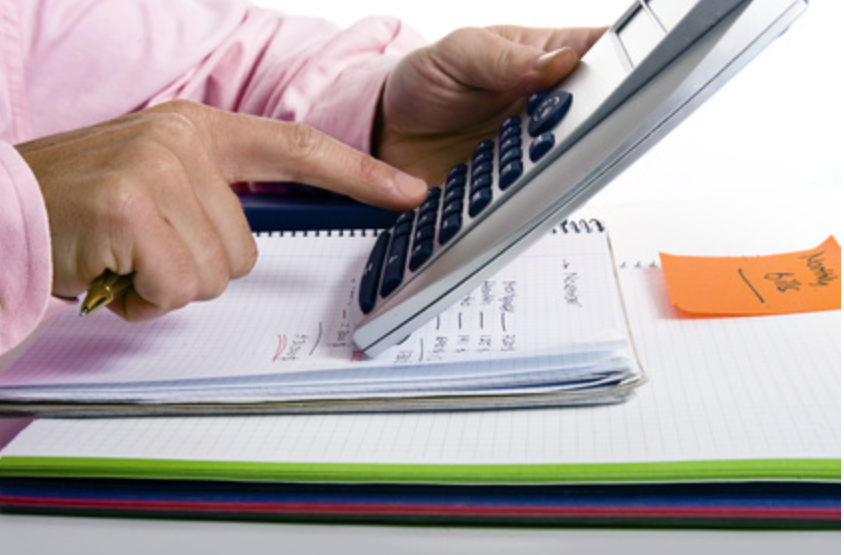
Most of us do not and that is why applications like Turbo Tax, Quickbooks, Mint and the like are booming because nobody has or wants to make the time to manage their money. Let me telling you something though managing your money is a must even if you are just overseeing your applications or accountant; you should never not know what is going on with your hard earned money. There are lot of things that fall under the Money Management umbrella this week we will discuss half of them and then finish up next week with the rest. Let's start with some of the things we know most people dread KEEPING TRACK OF YOUR FINANCES Keeping track of your finances is necessary for everyone. This will help you to have access to your financial records anytime. This will make life easier for you, when you need to; dispute a credit card charge, balance your accounts, save you time when looking for financial records, or find out where your money went to. We’ll look for ways to keep your financial information organized. There are numerous ways of organizing your financial information, and finding the most effective way for you is the key! STORAGE You need a place where you can store your financial records. It can be a simple box or a cabinet or if you are tech savvy, you can store your financial records in a computer. Make sure that it's safe and easily accessible. RECORD KEEPING SYSTEM Keeping tabs on your financial records is important for every person, every household. You don’t want to store a bill, which is due in a week, in a box and then forget which box you stored it. You can categorize financial records in to; bills paid, bills due, receipts, bank accounts, monthly statements, etc. You can categorize your financial records however you wish depending on your needs but there are standards among most record keeping systems. You would want to have a “Bills Due” file and a “Bills Paid” file. On a piece of paper, you can write down which bill you stored, when it’s due, if it’s paid, when it was paid, the amount due, the amount paid, and any other transaction details you want to include. HERE’S A LIST OF FINANCIAL RECORDS YOU MIGHT WANT TO KEEP Bank Statements Checking Statements Savings Statements Deposit Slips Monthly statements and bills Transaction Receipts Being organized is no easy task. Commit yourself to the system you have developed. Set aside time for filing your financial records and entering them in to your record keeping system. Remember, no one has the right formula for being organized. Things will definitely get easier over time. There are a ton of tools, tips and tricks out there but if it's going to work it has to be something you will actually do. The hardest part is finding what works for you. We'll be offering more assistance in this area with the launch of our upcoming course. We are determined to help those who want it attain wealth.
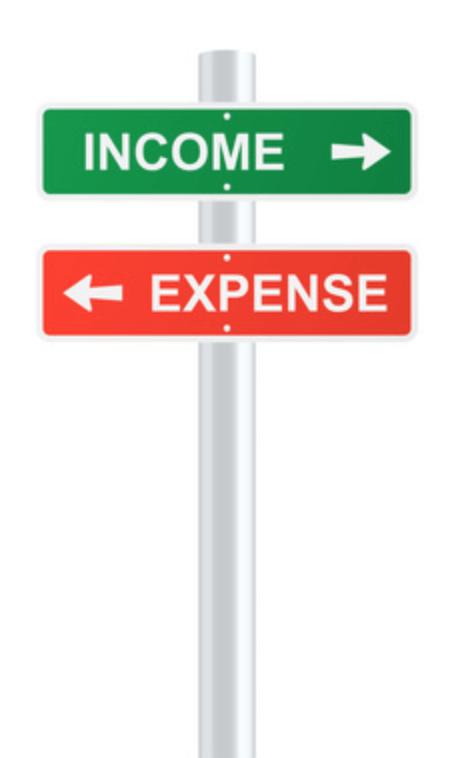
YOUR INCOME Let's take a look at your numbers to see where you are. Knowing where you stand is the first step in determining if you are going to the positive or the negative direction. The very first thing to consider in creating a household budget is your income.Figure your monthly household income. Create a list of all your sources of income. Your Gross Income is your total income before taking into account your income taxes and other deductions. Your Net Income, which will be used in creating a budget, is your income after deductions otherwise known as your take-home pay. YOUR EXPENSES After you have a list of all sources of your income. We will make an assessment of where you are heading by figuring your current monthly expenditures. In creating a household budget, aside from usual expenses such as transportation, house and food expenses, you also need to include spending like savings, donations and debt repayment. Here are the three types of expenses: Fixed expenses: Theses are expenses / costs that are paid on a regular basis (monthly, quarterly, annually). The cost is typically the same from period to period. Examples of fixed expenses are rent payments, car payments, insurance premiums. Variable Expenses: These expenses change depending on the good and services you consume. These expenses vary significantly from period to period such as car maintenance, clothing and food expenses. Periodic Expenses: These expenses may not be a monthly cost but is also included in your monthly budget. These expenses can be paid semi-annually or annually. This category includes prescriptions, doctor visits and home maintenance. You'll need to write down money spent in each of the following expense/spending categories, expressed as a monthly average. If you know the amounts for each sub-category, compute for the aggregate amount so you will have a single figure for each overall category such as transportation, food, and other areas of your household budget. If you know the value for the overall category, then you don't need to fill in separate amounts for the sub-categories indicated. If you don’t know the accurate amounts, good estimates would suffice. Here are the general categories of your household budget and the corresponding sub-categories. Housing: • rent or house payment • homeowner association dues • renter or homeowner insurance • real estate taxes • others Transportation: • car payment • fuel and maintenance • parking • car insurance • others Utilities: • household gas • water • electric • cell phone • cable TV • telephone • others Food: • groceries • meals out • liquor / beverages • others Donations: • church • fundraisers • others Entertainment: • movie theaters • concerts • hobbies • others Clothes and footwear: • clothes • shoes • laundry/dry cleaning • others Miscellaneous: • cleaning supplies • house wares • soap, detergent, shampoo • others Medical: • insurance • services • medicine / prescriptions • doctor visits • others Savings/investment/retirement: • savings • retirement account • others Things to ponder: Figure your monthly household income. Make sure that you use your take-home pay, after taxes and withholdings, in creating your budget. Don't forget to include all other source of income. Figure your current monthly expenditures. This includes fixed, variable and periodic expenses. Compare your income and your expenses. Determine if you have a positive or negative cash flow. If your expenses exceed your income, continue on. Go over your expenses again and and re-evaluate your expense /spending categories. See if there are expenses you can still make reductions / adjustments on to balance your budget. Set a goal for the in where spending is excessive. Again, set a financial goal and not a financial dream. Apply the changes you have made on your budget and see if it will work this time. You need to determine if you are going towards positive cash flow. You should also be able to identify other expense categories where you can reduce even more. Manage your savings. Remember, savings play a big role in achieving your goals. Download your budget worksheet here


